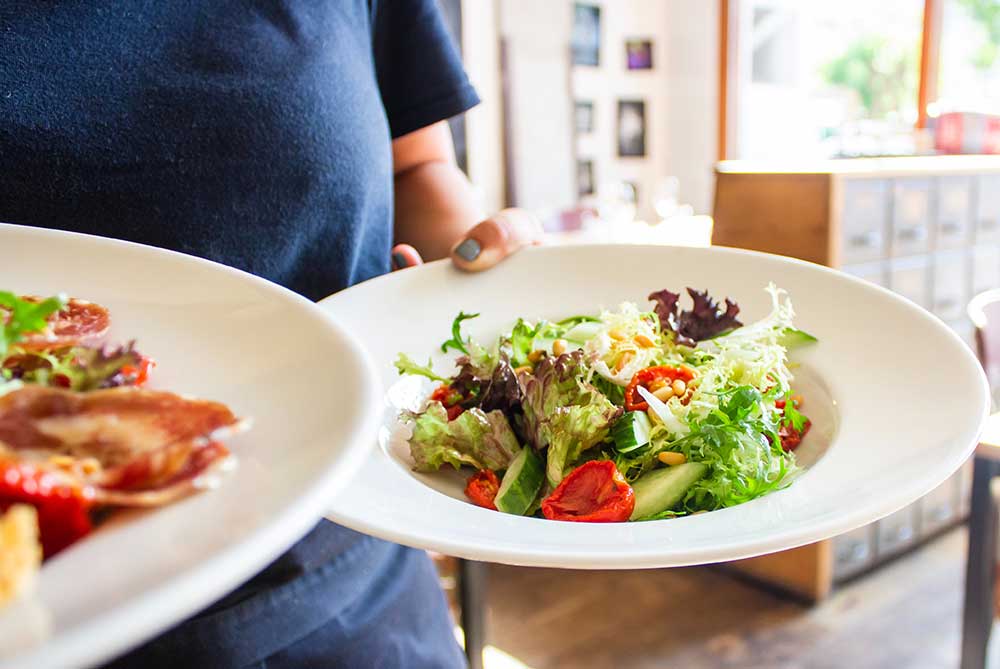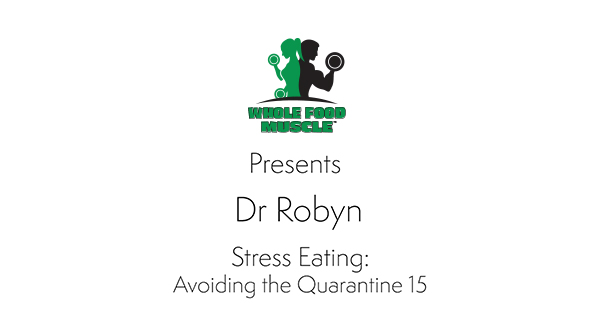
You Know You Should Eat Better But…

It is impossible to count the number of times someone has told me they know they should and that they want to eat better directly followed by the word “but.” Then there is a list of reasons why they have failed, why it doesn’t work for them, why they are frustrated. Eventually they often trail off into the idea that they are weak, bad or lack willpower.
None of that is what is actually going on. Your body is doing exactly what millions of years of evolution has taught it to do, eating as much as possible of what it believes is the highest quality calories to make sure you survive the next famine.
Of course, our food source has been taken hostage by an industry that only cares about the money causing our taste buds to no longer recognize real food. But there is hope. With a little knowledge and some awareness, you can wrestle back control. You body and your mind will thank you.
You Know You Should Eat Better But… No Time/Too Busy
This was a common excuse prior to the Covid-19 lockdown of 2020. With everyone home now, I’m hearing less of this excuse. However, I’m going to assume that it will come back once the world opens back up, so let’s go ahead and be preemptive in addressing it.
We have to get over the mindset that feeding ourselves is an inconvenience (a story made up and pushed on us by the food industry). Moving past that barrier is pretty straightforward once you understand the lies we've been told by those trying to profit from what we eat.
Feeding a family used to be seen as “women’s work” and not nearly as important as other types of work. When women entered the workforce, they were still expected to do the fulltime job of running the home. Big Food happily took advantage of the mainstream idea that “women’s work” was an annoyance and that food should be “convenient.”
With the convenience they offered, shelf life became important and nutrition became unimportant. You know how this story ends so I won’t belabor it.
Bottom line – you have to change the idea in your mind that feeding yourself and your family is inconvenient busy work. What you eat is one of the most important decisions you make every day. Make a point to make it a priority by ignoring the marketing pushed in your face when you are too busy to think about it.
Our Addiction to Distraction
With the ability to pull entertainment out of our pocket at any moment, few of us spend any time allowing our brain to just wander. It is thought of as a waste of time. If you’re feeling you are too overwhelmed to spend even a moment thinking about what you are eating, it could be caused by the never-ending stream of incoming information into your brain. The radio, the TV, your computer, your phone, Zoom meetings, books, papers, social media. It is all a constant barrage of incoming information.
And your brain gets addicted to it and wants more. If you’re like most people you have information coming in right up until you fall asleep and it starts again the moment you wake up. Do you eat scrolling through your phone or while on your computer? How do you expect to be able to “hear” your body tell you you’re full? You can’t. You’ll just eat until your plate is empty. And if it’s loaded with standard fare, you’ll have eaten entirely too much fat, sugar and salt and not nearly enough nutrients.
What if you curbed your addiction to distraction and took a moment to think about eating? Are you actually hungry? How hungry? Hungry for what? Is what you are about to eat nutritious fuel that will give you the energy you need AND increase your health and longevity? Or is it just junk to stuff in your mouth without thinking?
If you don’t stop to think about it there is no way you can make a choice, you’re too distracted.
Decision Exhaustion
You likely know that some of the most successful people in the world make an effort to limit the number of decisions they have to make every day. Some even going so far as wearing the same thing on a daily basis just to avoid thinking about clothing choices. Even for those of us who aren’t so important as be able to get away with wearing the same outfit day in and day out, we are still making upwards of 30,000 decisions a day. Assuming you sleep at least six hours, that means you are making 28 decisions a minute (how is that even possible?). While that seems unlikely, a Cornell study found we make about 225 decisions a day about food alone. Talk about exhausting!
When your brain gets tired of making decisions, you’re going to fall back on what is easy, quick, convenient and doesn’t require any thought. Which could be one of the reasons your healthy eating plan works great for breakfast and lunch but then completely falls apart by dinnertime.
Instead of trying to figure out what’s for dinner every night, make a big batch of one thing you can eat all week. You’d be surprised how you can make a different flavor every night with a single batch of beans and quinoa.
Emotional Eating
Negative emotions like sadness, stress, unhappiness and anxiety aren’t fun. Since eating releases pleasure chemicals in our brains, it’s easy to drown our sorrows under fat, sugar and salt. Eating ice cream and drinking alcohol is considered so normal after a break up, there are memes about it. And with everyone locked in their homes due to Covid-19, day drinking has become so normal it’s not even questioned anymore (that’s a little scary).
But what is really curious is we also eat when we are happy. Celebrations and holidays are associated with food: birthday cakes, fancy dinners, wedding receptions. When was the last time you got together with anyone and there wasn’t food involved? Any and all emotion, good, bad or indifferent, is a reason to put food, most likely processed sugar and fat, into our bodies.
There are A LOT of tips and tricks you can use to overcome emotional eating. Too many for me to do justice here. I am currently working on a short workshop called, “Stop Emotional Eating Without Giving Up Your Favorite Snacks” that will be of great help to you if you struggle with emotional eating. Make sure you are signed up to get our newsletter and you will be among the first to receive it when it becomes available.
The bottom line
There is one thing you can do now this is going to help you overcome all of these excuses. Start getting more nutrition in your body. The easiest way to do that is by incorporating more plants into your meals and reducing/eliminating empty calorie junk-foods.
People just like you are making that happen by being members of the Whole Food Muscle Club. Join today. You body is BEGGING to be healthy and we can help you do it.
Dr Robyn is a former competitive volleyball player turned psychologist with continuing education in nutrition. Russ is a former competitive bodybuilder and trainer on the Mr. Olympia Tour. They are the co-founders of Whole Food Muscle and the authors of How to Feed a Human The Whole Food Muscle Way. To work with them one on one to improve your health and fitness or to have them speak at your event or organization email them at Health@RnRJourney.com.



